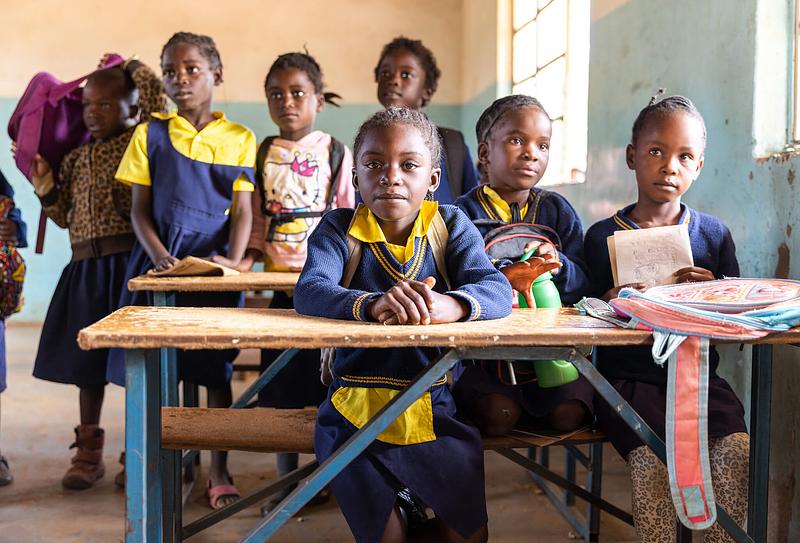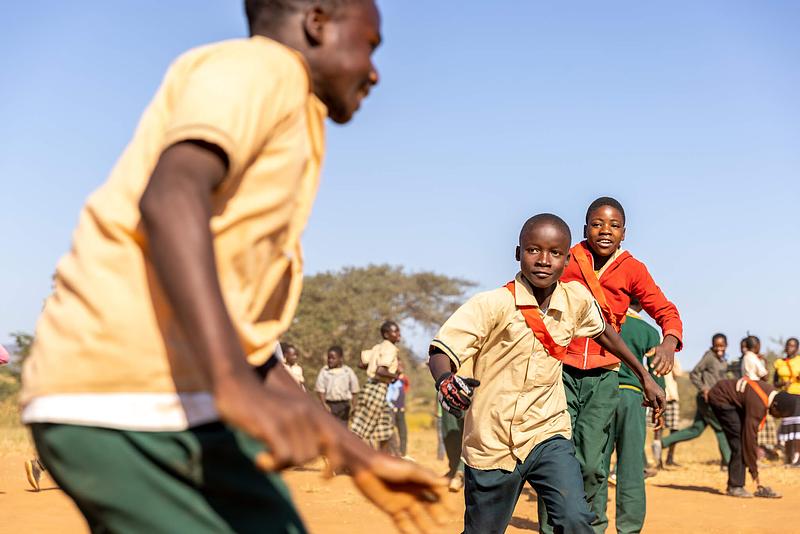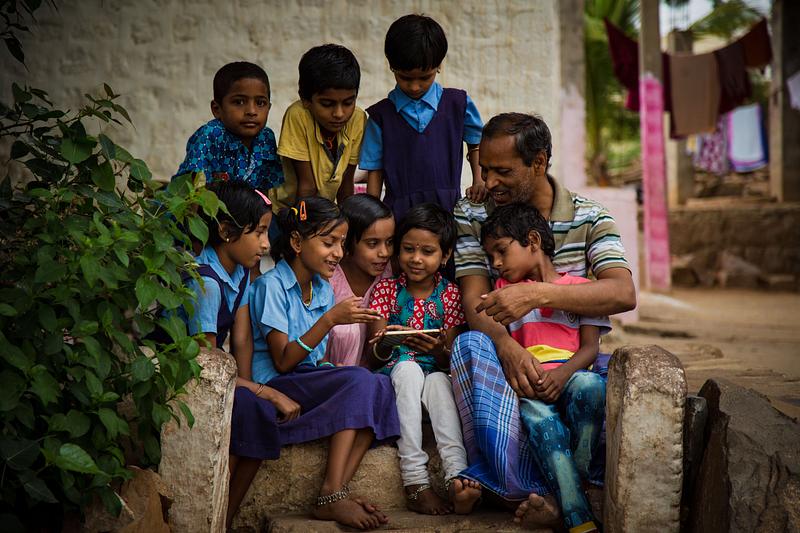Play occurs when humans choose and direct an activity involving the imagination that is actively engaging, often social, and generally enjoyable. In order for play to happen, it requires a playful mindset, one in which situations and activities are viewed as providing opportunities for leading, exploring, and enjoying. Playfulness is needed so that activities and experiences can become play.
Playful learning happens when the interests and curiosities of students align with the learning goals set up for them by their teachers. This phenomenon can happen when students are given the freedom to imagine and discover new information guided by the realm of learning goals intended by educators.
Does play belong in schools?
A study in the United Kingdom found that students who enjoy school in their early years perform better in academic tests in highschool. According to the OECD, a main contributor to young students liking school is when they are given the chance to play, which means that if we want our children to learn, we need to allow them to play and enjoy themselves.

Children in the Join for Joy programme
Join for Joy leverages play as a means of keeping children in rural areas of East Africa in school. Mwangala Ikacana, Director of PR & Operations from Join for Joy Zambia explains how their programme can keep kids in school, “Let's begin by painting a picture that is very related to the Zambian rural child. In many rural communities, from time to time, the local open markets tend to have road show's characterised by loud music, dance acts, product promotions, and so many other entertaining activities. During such a road show, you would likely see a very large group of people, most of them children. They surround the roadshow truck, dance along and stay there for hours until the show ends. On that same day, there would probably be a small number of children in school. This is not to say the road show is more important, but this should give us an idea of how a child's mind works. Children will forever be attracted to fun and play. Many rural schools have limited extra curricular activities currently, and this is where Join for Joy comes in. We have found a great way to use sport and play as a tool to get children attracted to school and stay in school. Not only is education being made more fun, but the quality of education is also improving; the learner's mind is super energised, and they are exposed to many life skills and social themes that they would otherwise not have had the chance to learn in this manner.”
“Children will forever be attracted to fun and play.”
Join for Joy trains teachers on how to teach children important life skills such as how to protect themselves from diseases such as HIV/AIDS and Malaria, and discuss taboo topics such as sexual violence, child marriages, and gender (in)equality. They do this because “...life skills are the foundation of what children need to develop themselves. The type of education children have and are exposed to today has a direct correlation to the type of decisions they make in the later years of their lives; for themselves, their families, their communities and for the country. This is why Join for Joy Zambia is committed and invested in enhancing life skills and the quality of education for rural children, and with it, all next generations”, explains Mwangala Ikacana.

Children playing in the Join for Joy programme
How can play support STEM education?
Science is a subject that naturally peaks the curiosity of children, opening a realm of discovery and experimentation. The founders of Twin Science & Robotics started their journey conducting science sessions around Turkey in village schools, orphanages, blind schools, and refugee camps. After organising STEM workshops for over 20,000 students in underserved communities, “we noticed that although they were gaining technical skills, they lacked guidance on applying them for the greater good. The education these children received was uniform and failed to comprehensively illustrate real-world issues”, explains Asude Altintas, Co-Founder & CEO of Twin Science & Robotics. “This led to the creation of Twin Science, aimed at nurturing what we call a 'double-winged' generation: individuals skilled in STEM and deeply committed to making a positive societal impact. Our purpose and motto became sparking compassionate curiosity in STEM for Sustainability.”
“Choosing interactive and using play to teach STEM is all about making learning enjoyable and effective.”
Twin Science STEM Kits in action
Twin Science & Robotics uses play-based methods to teach STEM with a sustainable lens, through a digital app and physical kits, “kids can tackle real-world challenges like creating sustainable farms or ocean-cleaning robots making their learning experience not only educational but also relevant to real-world applications and sustainability.” Using a play-based approach to teach STEM makes this learning all the more enjoyable while teaching children soft skills like problem solving, creativity, teamwork, and collaboration.
.png)
Students using the Twin Science STEM kit to build a moving solar panel
Similarly, Building Blocks (BB) - The Maths Learning App was created to give children in remote village communities in India the opportunity to learn maths in a way that kindles their natural curiosity and desire to explore maths. BB is a free gamified maths learning app that includes games that make maths learning more fun.
“Maths is an abstract subject and often difficult for students and teachers to visualise maths. Building Blocks helps students visualise maths and learn and play using simple interfaces. Our attempt is to drive conceptual clarity and also learn procedures in solving problems.” - Pushpa Thantry, Director Programs, Akshara Foundation
Children playing with the Building Blocks app
Can play be incorporated into all aspects of learning?
Play is certainly an effective way of nurturing the curiosity of children in supporting their learning of curricular material. Education for Sharing (E4S) strives to reach beyond traditional subject areas, focusing on helping students to become active learners and agents of change in their community. Bailey Meera Prasad, Strategic Partnerships Specialist from E4S explains that their play-reflect-act methodology facilitates an inclusive and interactive environment where students can play and experiment before applying what they have learned to real-life situations.

Students playing in the Education for Sharing programme
For example, in the game “can race”, participants are given a balloon and an empty can to move through static electricity. After the game, participants reflect by answering questions such as: Why did the balloon drag the can? Why is electricity a form of energy? How does electricity reach our homes? Does electricity pollute? Then students propose actions to reduce energy consumption in their homes and schools.
Through play, children learn from and teach one another by collaborating, helping each other and advocating for themselves by sharing ideas.
This methodology uses play to support children in learning social-emotional skills by collaborating, helping each other, and advocating for themselves by sharing ideas. These skills are essential for nurturing active citizenship. Bailey explains that, “active citizens are communicative, challenge injustices, speak up for themselves and collaborate with others to build a better society and a better world. These values and actions are innately derived from playful learning experiences and are intentionally integrated in the Education for Sharing methodology in order to foster active citizenship from a young age, through the power of play.”
Want to learn more about impactful education innovations? Check out the 2024 Global Collection report.
Working on your own innovation? Submit your innovation to be considered for the next collection.





%20(1920%20%C3%97%201080px).png)